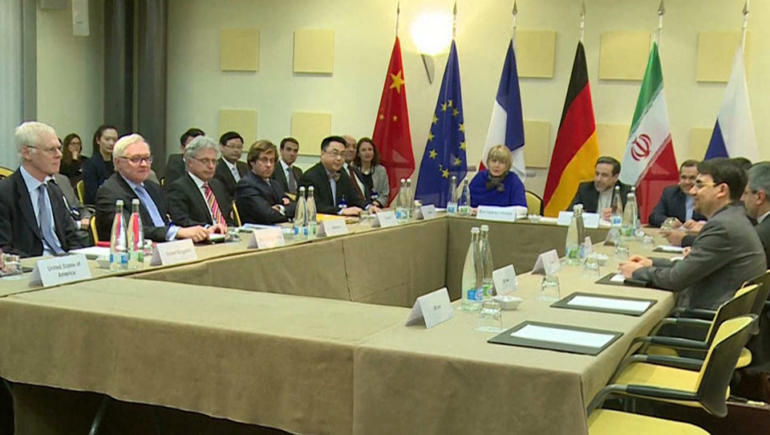Sixty days. That’s how long Iran is giving the remaining signatories of the 2015 nuclear deal — or enrichment of Uranium will resume. The move comes as the United States tries to cut off Iranian oil exports, isolate the country diplomatically, and threaten it militarily.
CGTN’s Nathan King reports.
Washington is already raising the stakes – announcing new economic sanctions. They target Iran’s steel, aluminum, copper and iron sectors, which provide foreign currency earnings for the nation’s sagging economy.
Iran said after fully complying with the nuclear deal, known officially as the Joint Comprehensive Plan of Action or JCPOA, abandoned by Washington a year ago, it is taking steps towards renewing the production of nuclear fuel.
“We are announcing a reduction of our obligations under the JCPOA. We are not leaving the JCPOA,” said Iranian President Hassan Rouhani.
While not abandoning the deal- Iran is stopping sales of its stockpiles of uranium and says it will start enriching Uranium again in two months unless the remaining signatories of the deal step up to their commitments.
Those nations, the UK, France, Germany, Russia and China, want to do so but Washington’s threat of sanctions against those that buy any Iranian oil or do business with Iran has had a chilling effect on their trade with Iran.
As well as economic sanctions Washington is stepping up military threats, dispatching an aircraft carrier to the Persian Gulf following what Washington called threats to US forces in the Middle East.
U.S. Secretary of State Mike Pompeo cancelled a visit to Germany and headed to Iraq Tuesday warning against any attacks on US interests there. Then he headed to London where he said he will wait and see what Iran actually does.
“We’ll have to wait to see what Iran’s actions actually are. They’ve made a number of statements about actions they’ve threatened to do in order to get the world to jump. We’ll see what they actually do. ”
Meanwhile Iran Foreign Minister Mohammad Javad Zarif was in Moscow to meet his Russian counterpart Segey Lavrov. Russia stressed the need to keep the nuclear deal in place and criticized Washington’s show of force.
“The United States’ intentions of to send its aircraft carriers to the Persian Gulf and, and in general to strengthen its military presence there alluding to their readiness to use force – you know, unfortunately, this has become a pattern of conduct of our American colleagues, be it the Middle East or the Persian Gulf or Venezuela. This is all regrettable,” Lavrov remarked.
Europe, Russia and China have all tried to create ways around the unilateral US sanctions- but Washington’s control of the global financial system has meant that is very difficult to do. Iran’s economy is suffering badly and the early promise of the nuclear deal is fading-and fears of a confrontation between Washington and Iran are rising.
Yubel Weber talks about US-Iran relations and the 2015 Iran nuclear accord
Yubel Weber, Associate Professor at Daniel Morgan Graduate School of National Security, spoke with CGTN’s Elaine Reyes about the effect of new U.S. sanctions on Iran and Iran’s call to renegotiate the 2015 nuclear accord.
 CGTN America
CGTN America

